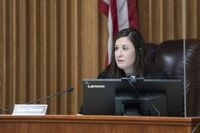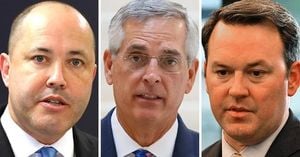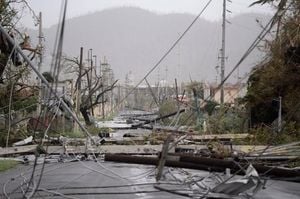The aftermath of the 2022 University of Idaho murders continues to reverberate through the courts and the community, as families, witnesses, and officials grapple with the consequences of intense media scrutiny, privacy concerns, and public fascination with the case. The brutal stabbing deaths of Kaylee Goncalves, Madison Mogen, Xana Kernodle, and Ethan Chapin at their off-campus rental home in Moscow, Idaho, shocked the nation and drew global attention. Now, more than two years later, the debate over what information should remain private and what should be made public is far from settled.
On August 28, 2025, relatives of two of the slain students petitioned a judge to halt the release of graphic crime scene images and videos. Their plea, as reported by the Associated Press, centers on the trauma such images inflict and the violation of their families’ privacy. "They are heartbreaking and continue to reopen a wound that has yet to heal," wrote Stacy Chapin, mother of Ethan Chapin, in her statement to the court. Despite attempts to redact the most sensitive aspects—bodies and faces were blurred in the released materials—the images still showed blood on the floors and walls, and the accompanying videos captured the anguished sounds of sobbing friends and roommates.
Leander James, attorney for the families of Madison Mogen and Ethan Chapin, argued in court that these redactions were insufficient. "Blurring is not redacting," James insisted, emphasizing the emotional damage caused by the continued circulation of such content. He urged Judge Megan Marshall to consider the impact on the families, stating, "They're in there, they're just blurred — they're harder to see." The commodification of the murders by what James called a "true crime sort of industry" only compounded the families’ suffering, he said, pointing out how quickly and widely such images can spread online. "Images like this are disseminated within an instant, worldwide," James remarked, highlighting the economic motivations driving some to exploit the tragedy.
The city of Moscow, however, finds itself caught between legal obligations and compassion for the victims' loved ones. Andrew Pluskal, attorney for the city, explained that the Idaho Public Records Act requires the release of investigatory materials once a criminal case concludes. The city, he said, carefully weighed privacy concerns against the public’s right to know, employing a "balancing test" as outlined by state law. Pluskal described the images as "harrowing" and admitted, "If there were options allowed in statute that allowed these records to be fired into the sun, the city would do it." But, as he pointed out, refusing to release the materials could expose the city to legal action. "The city is in the middle here — the city is going to get it from either side," he told the judge. Judge Marshall has yet to issue a ruling on the matter.
Underlying this legal tug-of-war is a broader, more troubling pattern: the harassment and intimidation of those involved in the case. According to court documents reviewed by the Daily Mail, both the State and Kohberger’s defense team have objected to unsealing court documents that would reveal the names, addresses, and contact information of potential witnesses. The reason? A well-founded fear of "unwarranted invasion of personal privacy" and the very real consequences that have already played out for some. The documents note that witnesses who have been identified publicly have suffered "harassment, threats, stalking and other concerning behaviors by the public and media."
One of the most visible survivors of this ordeal is Bethany Funke, a roommate who survived the attack. In a statement read to the court in July 2025, Funke described the relentless barrage of online abuse and real-world harassment she endured. "I still carry so much regret and guilt for not knowing what happened and not calling (911) right away even though I understand it wouldn't have changed anything, not even if the paramedics had been right outside the door," Funke said, as reported by CBS News. She recounted receiving death threats and being chased by strangers, while her family was inundated with calls and visits from people seeking details about the case. "Social media made it so much worse and strangers made up stories to entertain themselves," she continued. "The media harassed not just me but also my family. People showed up at our house, they called my phone, my parents' phones, other family members' phones, and we were chased while I was still trying to survive emotionally and grieve the loss of my friends."
The ripple effects of such harassment have been far-reaching. The State’s objection to unsealing witness information cited instances of physical surveillance, trespassing, and vandalism targeting those connected to the case. In one high-profile example, University of Idaho Professor Rebecca Scofield was falsely accused on social media of having an affair with one of the victims and orchestrating the murders. Scofield, who maintained she had never met the students, filed a defamation lawsuit against Ashley Guillard, who posted over 100 sensational TikToks and YouTube videos making the baseless claims. The lawsuit underscored the dangers of viral misinformation and the personal toll it can exact: "Due to this harassment, stalking and threatening behavior, previously identified individuals have had to take extraordinary actions such as filing police reports, moving residences, hiring private security guards, hiring media consultants (to track online harassment), and so forth," the filing stated.
As the legal system navigates the aftermath, both the prosecution and defense remain united on at least one front: protecting the identities of witnesses. "The Defense Objects to lay witness names being released... there is continued media attention – including social media and online sleuths and public harassment reasons," the defense stated in their filing. "Online media reflects continued attention and comments that may be offensive and harassing and impact safety and livelihood of persons named." The State echoed these concerns, warning that the intense media scrutiny surrounding the case shows no signs of abating.
Bryan Kohberger, who pleaded guilty to four counts of first-degree murder and one count of burglary in July 2025, is currently serving a life sentence without the possibility of parole at the Idaho Maximum Security Institution. His plea deal spared him the death penalty, but the pain and controversy surrounding the case remain very much alive for the victims’ families, survivors, and the wider community.
As the judge weighs the arguments over privacy and the public’s right to know, the University of Idaho community—and the nation—are left to reflect on the balance between transparency and sensitivity. The scars left by the tragedy are still fresh, and the outcome of these legal battles will shape how such cases are handled in the future, not just in Idaho, but wherever public interest collides with personal grief and safety.





